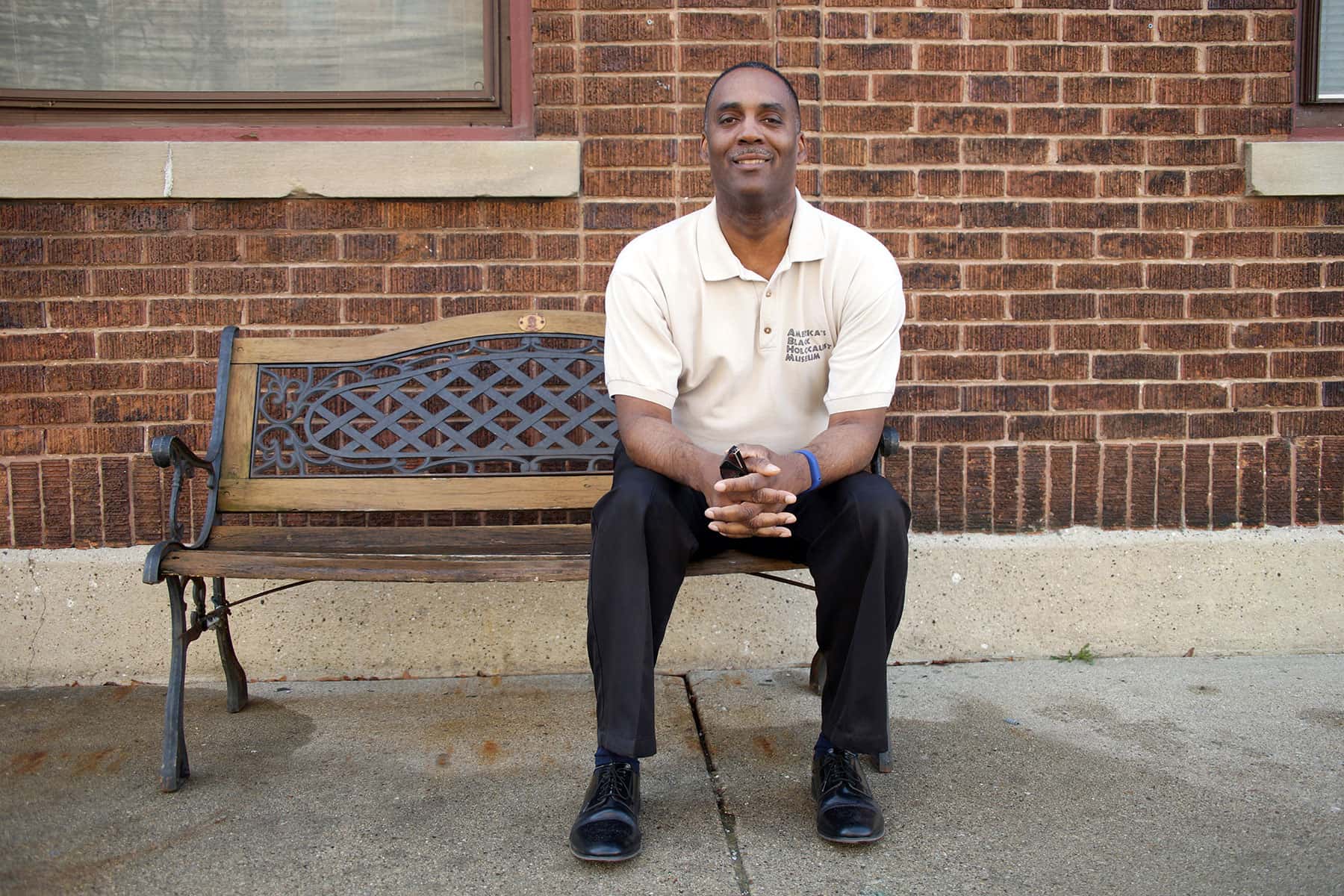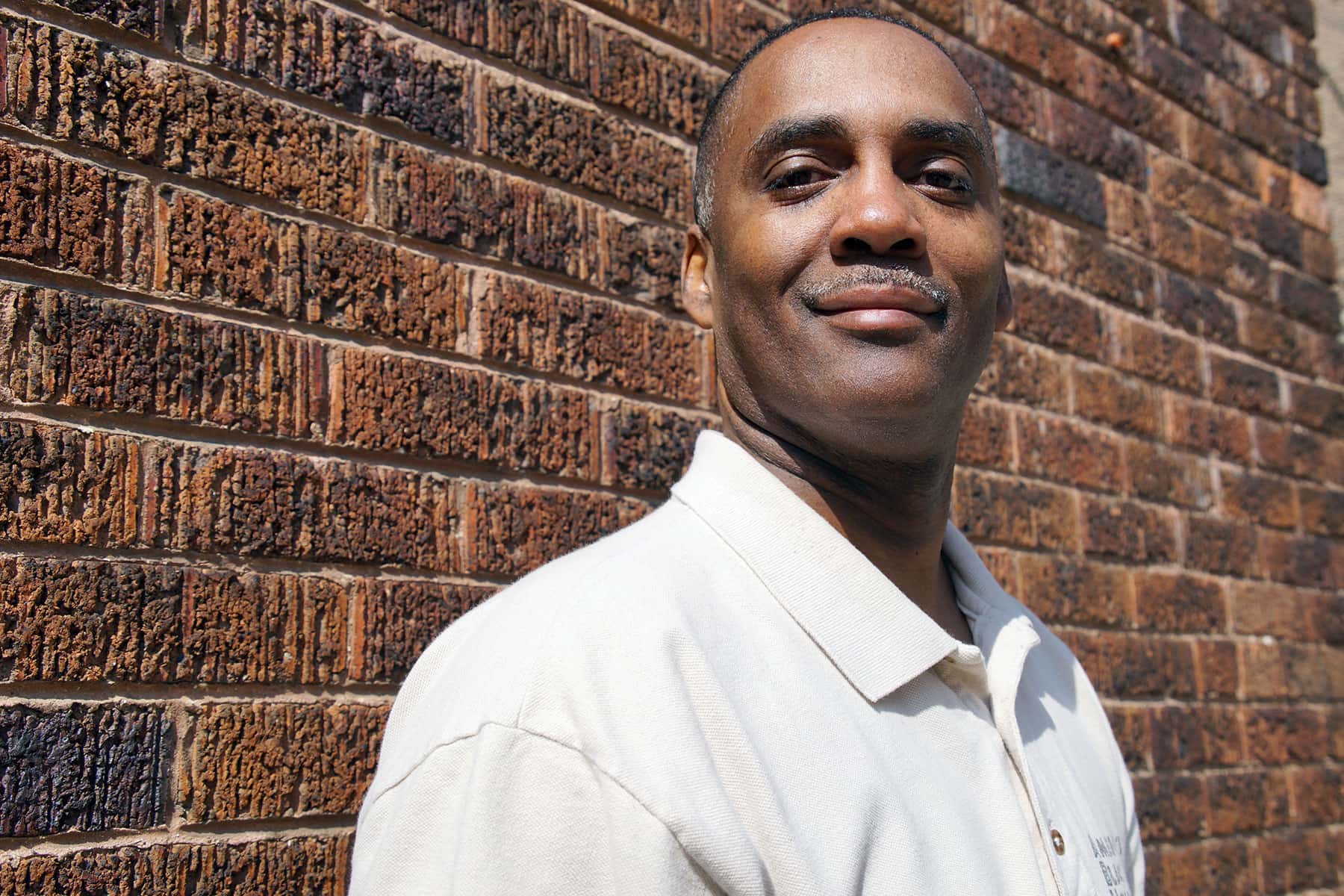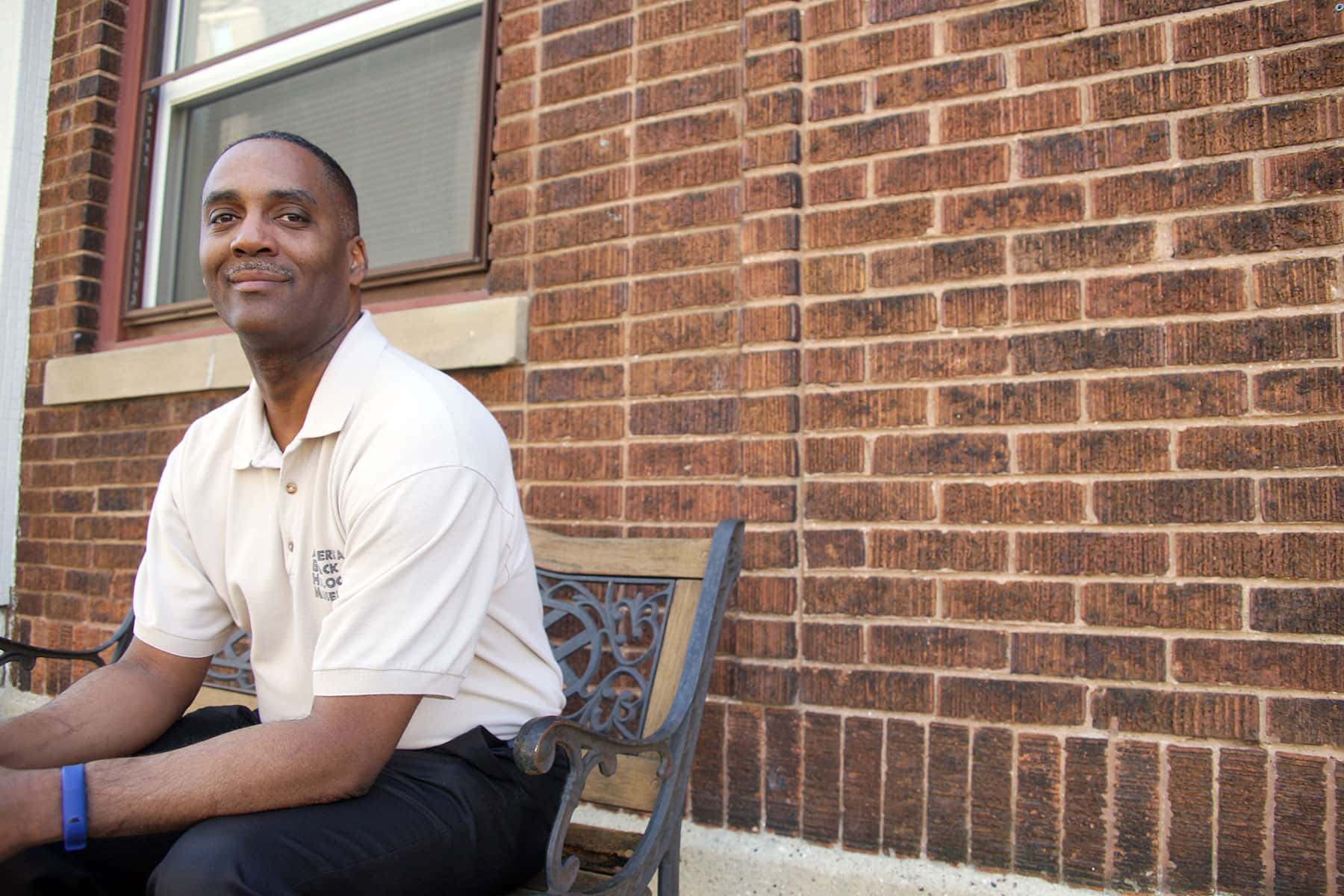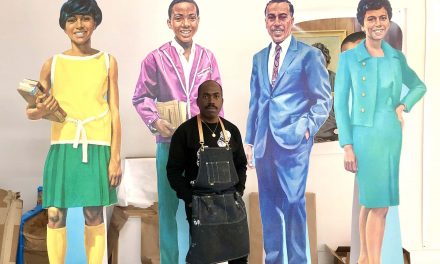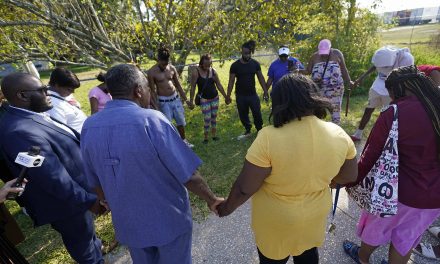
As Head Griot of America’s Black Holocaust Museum (ABHM) and a voice for the silent generations affected by Milwaukee’s history of segregation, Reggie Jackson shares inconvenient truths to educate the public about the need for Economic Rights to finish what the Civil Rights movement started decades ago.
Q&A with Reggie Jackson
Milwaukee Independent: Who were some of your role models growing up?
Reggie Jackson: My primary positive role models were both my mother and grandmother. They were hard working women who raised my brother and I to be respectful.
Milwaukee Independent: Why has there been a general lack of knowledge about the 400 years of black history in America?
Reggie Jackson: The lack of knowledge is caused by reluctance on the part of our educational system to honestly talk about blacks in the nation’s history classes. Despite attempts to include the lives and stories of blacks in American history, most white historians have for an extended period of time failed to tell these stories. In 1926, Dr. Carter G. Woodson started a celebration he called Negro History Week that began to include the contributions of blacks in history. He argued that blacks were deliberately left out of our history books. This celebration, which is now more commonly known as Black History Month, has not been able to end this trend of leaving out blacks or marginalizing their stories. Our history textbooks, for the most part, do very little to share scholarship from decades of tremendous research on the lives of blacks.
Milwaukee Independent: What is the biggest challenge you face in trying to educate a public that is too disinterested to listen?
Reggie Jackson: The biggest challenge in educating the public is convincing them that these stories have been hidden in plain sight. The work has been done to provide this information, which paints a clearer picture of the history of blacks in America. Exclusion of these stories, because they don’t fit the narrative of America as a just and equitable society, is a reality we must acknowledge. I’ve attempted to share this history in such a way that the stories cannot be impeached. The facts are clear. Inclusion of these facts is the problem. For example, President Lincoln’s efforts to colonize freed blacks are certainly a part of his legacy. However, we find that our history books rarely if ever mention this side of President Lincoln.
Milwaukee Independent: Is there a common question the public asks you about regarding the Black Holocaust?
Reggie Jackson: Yes. There are actually two. The first is: What is the Black Holocaust? People also ask how the word holocaust is related to the history of blacks. They generally associate the word with the extermination of six million European Jews by the Nazis.
Milwaukee Independent: What is your view of the Milwaukee Public School System?
Reggie Jackson: I believe the Milwaukee Public School System is very similar to most large school systems in the country. It is full of hard-working dedicated teachers and administrators who are attempting to do the best they can for their students. It is an extremely difficult task. In a time where our elected officials have slashed school budgets for K-12 education and attacked teachers unions, it amazes me that we accomplish the level of success we have. Most people outside of the education system imagine that our school system is working as it did when they were students. Today’s public education is not what it once was. There are more demands on MPS, at the same time fewer resources are made available. I challenge any organization to be able to make progress while having massive budget cuts year after year. Much of the available data suggests that the district can obviously do better.
As a former employee of MPS, I can tell you that the struggles of the district are not simply the responsibility of teachers, as many would have you believe. An increased level of mandatory standardized testing has placed a great strain on students. Because most of these tests are for only math and reading, the district has been forced to de-emphasize other subjects. Nearly all of the efforts and initiatives within the district are related to improving test scores in those areas. As a general rule, young people learn differently nowadays. They are accustomed to a technology driven life. Instant gratification is their expectation. Ask any teacher and they will tell you that many students believe using Google and Wikipedia is the only way to do research. Motivating young people who are accustomed to having their way most of the time is a serious challenge to MPS.
I’m amazed at the lack of attention the district and the public pays to the level of disrespect teachers face daily. Unlike in the past when students were required to respect adult authority, in far too many schools that is no longer the rule. It is the expectation, but it is not the reality. A transient student population, aging infrastructure, and a lack of support for educators will continue to be huge challenges for MPS.
Milwaukee Independent: Are Milwaukee students being taught about men like Ezekiel Gillespie and Joshua Glover?
Reggie Jackson: These names are not generally in our history textbooks. There are some teachers I’m sure who tell their stories. If the students are exposed to these amazing historical individuals, it is probably only during the month of February.
Milwaukee Independent: How did you pick the French term Griot to describe your position with ABHM?
Reggie Jackson: The term Griot is a term used in the French speaking part of West Africa to describe the oral historians, the keepers of the history. Our founder, Dr. Cameron, was part of a group of writers that were known as the New World Griots.
Milwaukee Independent: What do you enjoy most in your position with America’s Black History Museum?
Reggie Jackson: As Head Griot and Board Chairman of our umbrella organization, the Dr. James Cameron Legacy Foundation, I’m seen by many as the face of the organization. I’m honored to follow in Dr. Cameron’s huge footsteps. I love being able to share our valuable scholarship with the public. I’ve spoken in schools, colleges, churches, businesses, and other places about the Black Holocaust. The overwhelming feedback I’ve received is gratitude for keeping this history alive. To be able to educate the public on how we as a nation have gotten to where we are racially is my passion.
Milwaukee Independent: What was the hardest discovery or truth you have learned from your study of black history?
Reggie Jackson: The hardest truth is the consistent devaluation of black people throughout America’s history. We as American’s are generally familiar with the stories of slavery and Jim Crow segregation. However, we know little about the brutal violence that supported these institutions. The lives of black people have been devalued by: our political system, legal system, medical establishment, criminal justice system, educational institutions, and the majority of citizens outside the black community. People find this hard to believe. They think that by saying this it is somehow race-baiting. However, a close study of American history makes these issues crystal clear. Most of us have not learned about this ugly side of our history in school and as a result doubt these facts.
Milwaukee Independent: You have said there is a long tradition in the way blacks have been devalued in America. Can you explain this, and why is it ugly to talk about?
Reggie Jackson: The devaluation of black people in what is now America can be traced to English, French, Dutch, and Spanish colonies that enslaved blacks for centuries. Native Americans were enslaved as well. The common denominator was that these two groups were not white. Racial slavery is America’s original sin. Laws were written to support an economic system that devalued the lives of most blacks in the colonies that eventually became America. Most of the Founding Fathers, including several Presidents, were owners of black people. The Constitution supported the devaluation of blacks by counting only three of every five blacks as people to determine the number of representatives in the House of Representatives. This came about as a result of tumultuous discussions during the Constitutional Convention, which ended with the so called three-fifths compromise.
Fugitive slaves by law, according to the Constitution, were to be returned to their owners. The words slave and slavery were never mentioned in the Constitution because it would have made the Declaration of Independence and mythology of America as a justice-based society look like hypocrisy. During the slavery era, laws were drafted to control the black population. Black girls and women were not protected by law from rape. State laws said that owners of enslaved blacks were to be paid restitution in the event of a death, because they were considered property. Violence was the tool used to control blacks and keep them enslaved. The medical establishment used blacks as guinea pigs to test medical procedures before they could be used on whites.
Violence in the form of organized lynching was widespread throughout the country. Thousands of back men, women, and children were lynched and denied due process of law when accused of crimes. Many black lynching victims had not even been accused of any crime. They were shot, hanged, and burned alive after being tortured in public. These events were done in front of dozens to thousands of witnesses. The perpetrators of these acts rarely faced charges.
Public benefits like the Social Security program and unemployment insurance were denied to a majority of blacks for decades. The GI Bill benefits earned by black soldiers and sailors who fought in WWII were denied to many of them. Housing discrimination in the form of restrictive covenants and redlining, forced blacks to live in segregated neighborhoods that people derisively call ghettos. Our criminal justice system has disproportionately arrested and incarcerated blacks for most of our history. Felony disenfranchisement laws were designed to prevent blacks from voting. I could list dozens of other examples of the ways blacks have been devalued.
Milwaukee Independent: Why are the poor in Milwaukee so isolated, and more so than other major cities?
Reggie Jackson: The isolation of poor blacks and Latinos in Milwaukee is the result of public policy, real estate agents conspiring to keep neighborhoods of a certain racial demographic. The federal government drew maps and made red lines around undesirable areas. This practice of redlining ensured segregation and isolation. White citizens signed restrictive covenants to keep blacks out of their neighborhoods. During the open housing marches in the late 1960s, angry whites met peaceful, mostly black activist with anger and violence when attempting to cross the 16th Street Viaduct. Real estate agents still commonly steer blacks to certain areas of Milwaukee. Milwaukee’s segregation is worse than in most other cities because it’s suburbs have been resistant to black residents. Milwaukee has the lowest percentage of blacks living in its suburbs of any major city in the country. As a result, middle class blacks are more likely to live in poor neighborhoods in Milwaukee. So areas that appear to be poor actually include many middle class blacks.
Milwaukee Independent: Do you believe that the deep racial and economic division are challenges to the Milwaukee Renaissance?
Reggie Jackson: With the massive loss of well paying manufacturing jobs, Milwaukee has been transformed into a prison of low wage earners. In many ways these divisions are along racial lines. Milwaukee’s whites have recovered fairly well from the most recent recession. Blacks and Latinos have struggled to do so. The new manufacturing jobs are in the suburban or exurban areas outside Milwaukee. The economic development of downtown has not had a positive impact on communities of color. This so-called Renaissance has primarily benefited Milwaukee’s white community. Economic development in the central city has not been a priority of our elected officials.
Milwaukee Independent: What were the Jim Crow laws of the South, and does Milwaukee share any parallels to this era?
Reggie Jackson: Jim Crow laws were based on segregating blacks from whites. The laws developed in the late 1800’s to deprive blacks the dignity of equal citizenship. They included separate train and bus seating, whites only hotels and movie theaters, water fountains, and such. The laws and their accompanying signs were only part of how Jim Crow worked. The separation was on many other levels. Most importantly, the system was designed to reinforce the superiority of whites over blacks. Milwaukee did not have signs like Birmingham, but the practices were alive and well in custom. Blacks were denied jobs, meals, and accommodations around the city. It has been called the Selma of the North because the fight to end Jim Crow was a big part of the history of Milwaukee in the 1950s and 1960s.
Milwaukee Independent: Can you explain about the Black Freedom Struggle?
Reggie Jackson: The Black Freedom Struggle began when the first enslaved blacks were forced out of their homes and communities in Africa. Contrary to popular belief, blacks never accepted servitude. They fought back with whatever tools they had at their disposal. This did not end with the legal abolishment of slavery that came about with the 13th Amendment. A new form of enslavement took the place of Pre-Civil War slavery. This new form used the legal system to force blacks to work off the debts incurred by being charged with bogus crimes, such as loitering. Systems known as debt peonage labor and sharecropping kept blacks in a state of virtual enslavement for decades. Blacks continued to challenge their unfair treatment, culminating in what’s known as the Black Freedom Struggle in the 1950s and 1960s. These efforts continue today.
Milwaukee Independent: So much has been written about the problem of the black community in Milwaukee, then why are we no closer to solving these issues?
Reggie Jackson: Many of the problems of the black community are directly related to a lack of concern by public policy makers in mitigating the effects of the loss of quality jobs. In the early 1970s, the job force participation rates of blacks and whites were nearly identical. Milwaukee lost over 80 percent of its manufacturing jobs from 1963 to 2000. This has devastated the black community. The jobs that have replaced the lost high paying, high quality, family supporting jobs are low wage service sector jobs. The level of poverty has been exacerbated by the influx of drugs in the 1980s. This illegal drug economy replaced the jobs lost for some. The violence associated with this led to dangerous communities. As these mostly young men began to be arrested and sent to prison in large numbers, the black community was devastated. The drug addiction problem made it even worse. The black community has never really recovered from this loss of quality jobs and disproportionate incarcerations. Wisconsin has the highest incarceration rate for black males in the nation.
There has been a shameful lack of concern for the plight of the black community in Milwaukee. For decades, public policies have continued the devastation of the economy in poor black and Latino communities. The return of formerly incarcerated men who can’t find work continues to cripple Milwaukee’s black families. The poverty rate for black children is consistently one of the highest in the country. Economic recovery will be the only thing that mitigates these problems.
Milwaukee Independent: In your opinion, what is the biggest misconception white society has about blacks in Milwaukee?
Reggie Jackson: Easily the biggest misconception whites have about backs is the idea that black people don’t want to work. The old stereotype of lazy blacks is still strongly a part of the discourse in the white community. Few whites are aware of the difficulties faced by blacks economically. They blame blacks for their own plight. These people have no idea about the history of how we went from nearly identical workforce participation rates of blacks and whites in the 1970s to such huge disparities now. Within Milwaukee, prior to our most recent recession, there were about six people looking for work for every available job. That became much worse during the recession. Due to a policy of suspending driver’s licenses for municipal citations, many blacks don’t have a legal way to get to jobs. The cuts in the budget for the Milwaukee County transit system made even less jobs available, due to the lack of public transit to where the jobs were growing outside the central city.
Milwaukee Independent: Is part of the problem with race relations in Milwaukee that we think we understand each other and this familiarity hides the truth that we really do not?
Reggie Jackson: Race relations in Milwaukee are related to our nation’s history of devaluing non-white people. Public laws and policies have created justifications for people of color having less than whites. Whites have had privileges that they take for granted since America began. A sense of whiteness being better than non-whiteness infects the psyche of America. We can see reluctance among whites to even discuss the ugly parts of our history as a barrier to real change. Assumptions and stereotypes of people of color have kept us from having conversations and learning about each other. Our educational system does not value the experiences and contributions of people other than whites. People of color know much more about whites than whites know about them because stories of whites are the narrative of America. Without inclusiveness for people of color, whites will continue to be misinformed. They will continue to live in isolation. They will continue to see a truth that is not based on facts, because it contradicts the traditional narrative of our country.
Milwaukee Independent: Were you old enough to watch the TV mini-series “Roots” and what impact did that have on you?
Reggie Jackson: I was in 7th grade when Roots first aired. It was tremendously impactful. I was able to see for the first time the brutality of slavery. For the first time in my life I could see the callousness with which whites treated blacks. I could see for the first time the devaluation of blacks. I could also see the resilience of blacks. I could see the strength within a brutalized, marginalized people very clearly. I can remember how everyone was talking about it and crying about it.
Milwaukee Independent: How influential was Dr. James Cameron on your life, and what was the most important lesson you learned from him?
Reggie Jackson: Dr. Cameron changed my life. He was a father figure, mentor and close friend. He taught me the value of being passionate about this history and its importance to the world. During the many conversations I had with Dr. Cameron, the most important thing I learned was the value of brutal honesty when talking about American history. We cannot afford to lie to our children and ourselves if we truly care about change.
Milwaukee Independent: Do you have an opinion on the proposal of reparations for slavery in the United States?
Reggie Jackson: The desire and expression of the idea of reparations is a very old one in America. Most of us are unaware that enslaved blacks demanded reparations in the 1800s. Reparations are indeed due. The American economy was built on the free labor and ownership of black men, women, and children. Hundreds of industries depended on the institution of racial slavery. The enrichment of America and Europe is rooted in the stealing of land from Native Americans, and the subsequent enslavement of tens of thousands of them, and millions of Africans. The greatest level of wealth in the South on the eve of the civil War was in ownership of black people. It is impossible to quantify the costs of lost wages by blacks in America. The concept of reparations is an old idea stretching back centuries. I can’t say what form reparations should take, but there is clear evidence that it would have a tremendously positive impact on blacks.
Milwaukee Independent: How do you feel when Americans condemn oppressive governments like China for their human rights violations, but do little to acknowledge our own post-Civil War legacy?
Reggie Jackson: I’m always amazed at the hypocrisy. Even during the Cold War, our leaders condemned other nations for humans rights violations while doing nothing to acknowledge or address the same violations against people of color here. Americans question why many around the world speak disparagingly of us. It is because of hypocrisy. We have had a history of supporting people like the Shah of Iran, Saddam Hussein, corrupt and oppressive governments in Latin America and Asia because it benefited our economy. It makes us look ignorant when we refuse to accept that we have denied human rights, not civil rights, to people of color for centuries. Doing this while proclaiming ourselves as the model for the world to follow, as compassionate and humanitarians of justice, makes us look very bad.
Milwaukee Independent: What do you think is needed to help ease discrimination in the Milwaukee community?
Reggie Jackson: Discrimination is the child of prejudice and racism. Eliminating racism seems a very far-fetched idea. Many people have told me it is impossible. I can’t believe this. Obviously, we can only make changes in a very slow and gradual way. It takes a great deal of effort to ease discrimination because it provides privileges to those who discriminate. It makes little sense to discriminate unless you get something out of it. As long as whites in Milwaukee continue to enjoy the benefits of discrimination they will not be likely to give it up. What people need to understand is that when we put people into a very bad place to live they drag themselves down as well. It is morally reprehensible to discriminate yet people do it every day. They find ways to justify it in their hearts and minds. They do it consciously and unconsciously. By opening our minds to see the perspective of those we discriminate against, we open up a pathway to see ourselves for who we really are. We need to educate ourselves on the impacts of discrimination. Then we will be able to empathize with victims of discrimination.
Milwaukee Independent: Have you seen progress in reducing economic and racial inequality in Milwaukee?
Reggie Jackson: I’ve seen a great deal of work being done across the city to work on racial inequality. People are talking in open forums about ending this unjust system. Many organizations have been formed to do just this work. It’s heart warming to see people willing to dedicate themselves to this effort. However, much more needs to be done. Economic inequality has not been nearly as strong an issue for advocates of change. Public policy makers in Milwaukee need to make it a priority to work on helping our poor communities by providing quality jobs. It is imperative to work on this because Milwaukee will never be whole when a permanent underclass exists.
Milwaukee Independent: If there was one thing you could do that would effectively erase racism, what would it be?
Reggie Jackson: There is one very easy thing to do to erase racism. Stop lying. I would make people stop lying. We continue to lie about our past. We continue to lie about the privileges whites have at the expense of people of color. The social disenfranchisement for people of color often sneaks into the white community and impacts white people. Look at how poor whites in Milwaukee suffer due to the same public policies that harm people of color. Just telling the truth would begin positive change.

